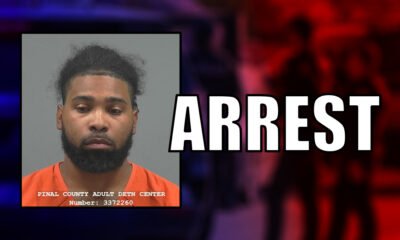arizona
Fontes Stands Firm: Refuses to Share Arizona Voter Names, Claims ‘I Don’t Want Blood on My Hands’

Arizona Secretary of State Adrian Fontes defended his choice to withhold the names of 218,000 voters with improper registrations from conservative groups seeking the data. During a court hearing in Maricopa County on Monday, Fontes expressed his concerns, stating, “I don’t want blood on my hands.”
The organization America First Legal, led by Stephen Miller—a former senior advisor to Donald Trump—filed a lawsuit against Fontes after his office denied their request for the voter records. This lawsuit was backed by the Strong Communities Foundation of Arizona, a nonprofit group headed by conservative activist Merissa Hamilton.
Hamilton’s group initiated their request after discovering a glitch in Arizona’s driver’s license database, which affected more than 200,000 voters. The records sought were meant to disclose only those voters implicated by the error.
In response, Fontes’ office stated that the requested information would not be publicly available before the November elections, emphasizing that releasing it now could lead to confusion and unrest among voters. “We expect record turnout,” Fontes added, underscoring the potential for chaos amid the electoral process.
Fontes also articulated concerns over how Hamilton planned to distribute the data. If released, Hamilton indicated she would share it with Arizona legislators, although Fontes feared these lawmakers might misuse it. “I’m going to fight like hell for a lot of those folks from having this list,” he emphasized, pointing out the troubling history of conspiracy theories within the Arizona Legislature.
Last year, state lawmakers were embroiled in controversies regarding alleged election fraud, and some have publicly encouraged citizens to monitor ballot drop boxes for fraud, despite a lack of evidence supporting widespread electoral misconduct.
The glitch in question had inaccurately labeled certain voters—those who obtained driver’s licenses before 1996—as having provided proof of citizenship, a requirement for voter registration in Arizona. This issue affects a considerable number of voters, including 79,000 Republicans and over 60,000 Democrats.
The Arizona Supreme Court recently ruled against altering individual voter registrations without appropriate legal approval, further complicating the situation. Fontes maintains that transparency is important but worries that releasing the list could endanger voter security and provoke violence, echoing broader fears around election-related unrest.
In court, Hamilton argued for her organization’s non-partisan stance, despite her conservative leanings. She faced scrutiny regarding her affiliations with groups known for promoting misinformation about elections and engaging in potentially harmful activities.
Fontes’s office, while recognizing the extent of the error, warned that the actual number of voters lacking proof of citizenship might be smaller than indicated. The case has prompted Governor Katie Hobbs to order an independent audit of the Motor Vehicle Division’s registration system.
Maricopa County Superior Court Judge Scott Blaney has not yet announced a timeline for his decision regarding the lawsuit.

















